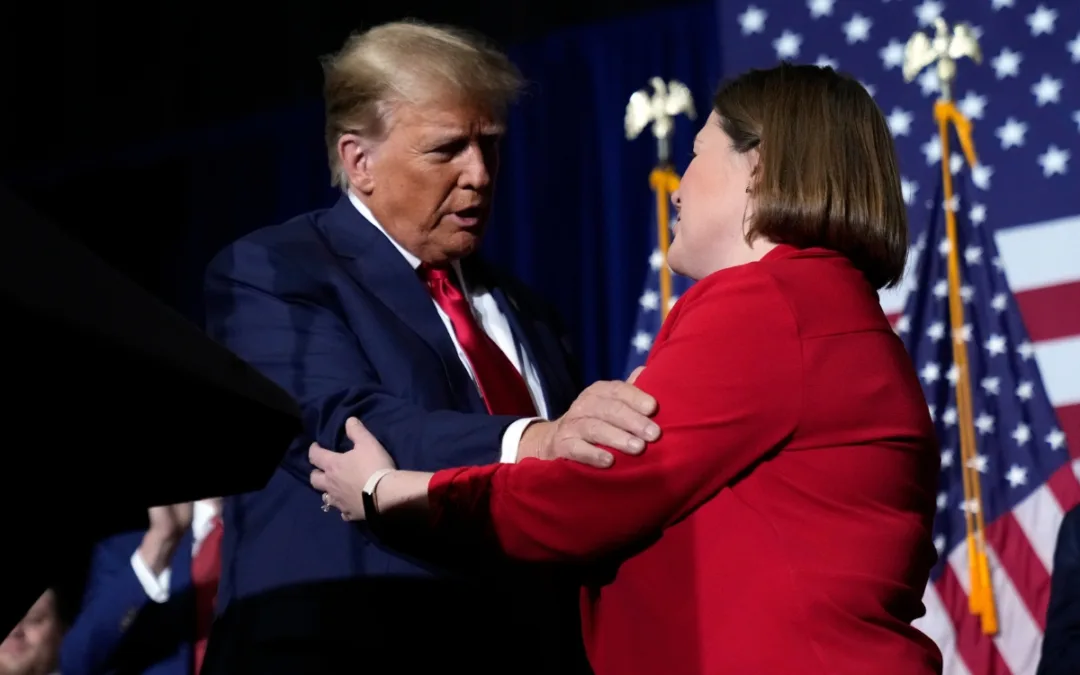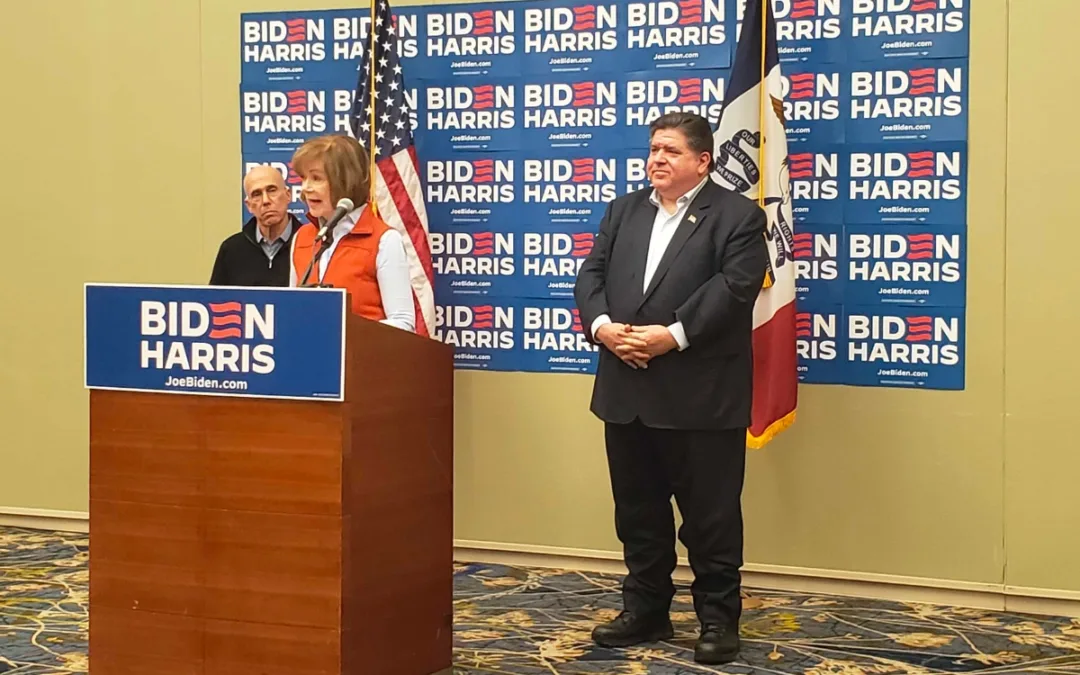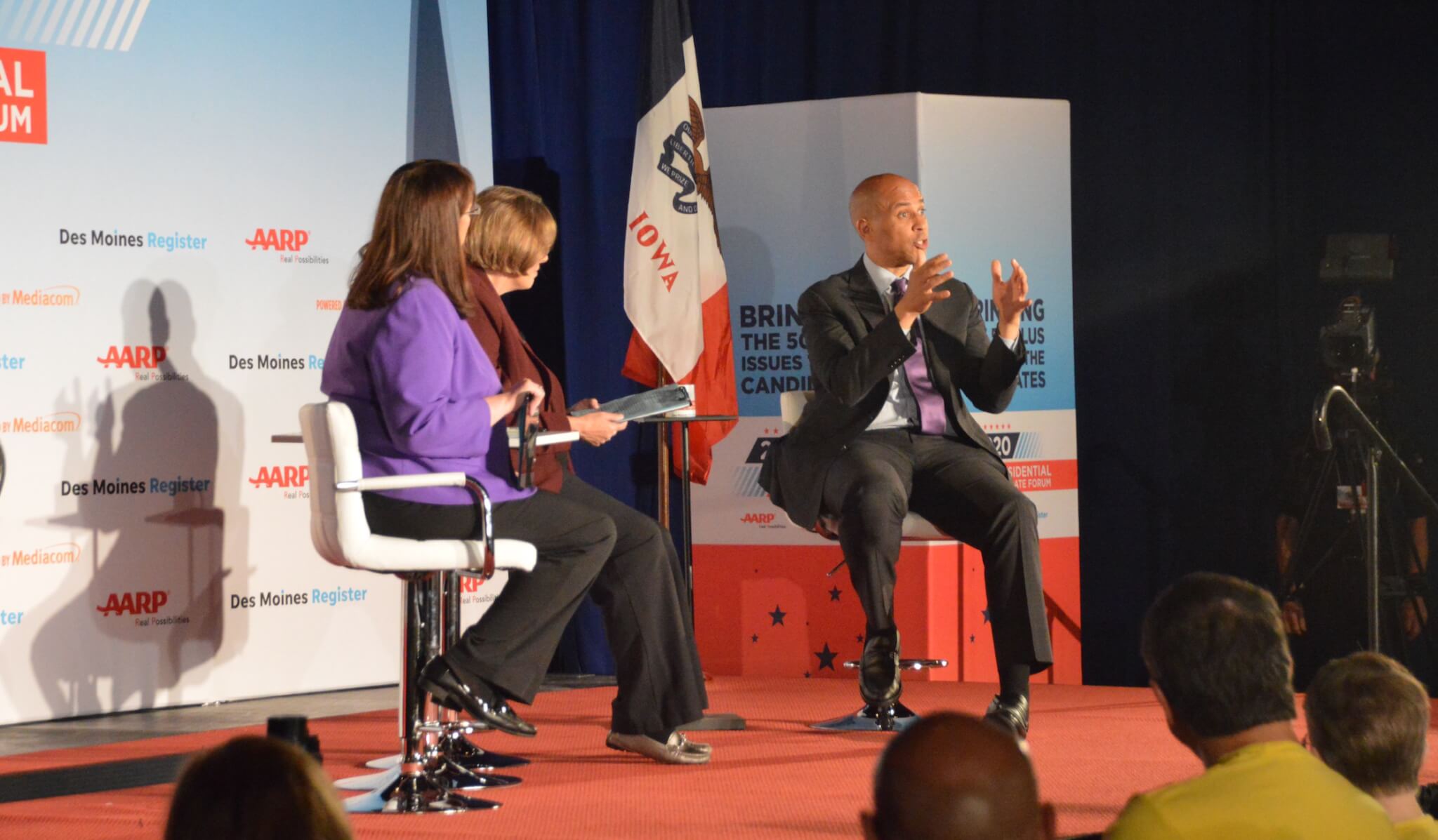
Last week, coincidentally timed with AARP/Des Moines Register candidate forums, nearly all of the Democratic presidential candidates rolled out long-term health care plans, as well as plans to strengthen social security and combat rising health care costs.
While rising costs have been a major topic of discussion in Iowa during the summer, most of the conversation up to this point has been acknowledging problems.
After watching every single candidate’s AARP forum, one thing is incredibly clear: the candidates know what the health care problems are. From the cap on taxable income, to pay-for-delay, loopholes in the tax code, unregulated pricing mechanics, a lack of negotiation opportunities, to straight-up collusion, they’re aware of what is going on, and they’re starting to come up with some creative regulatory solutions.
Forum Format
Each candidate was given twenty-five minutes on the stage to answer questions from the audience and moderators on a wide array of issues. There were a handful of questions asked to every single candidate, but there were also some candidate-specific questions which gave them a chance to explain how their personal views would impact their approach.
Here’s some of the biggest issues highlighted during the forums that the candidates seemed to agree on, and some of the more creative solutions put forth.
Strengthening Medicare
Let’s start with Medicare, because it’s one of the issues where there is some disagreement. While everyone’s goal is the same – increase coverage and quality across the country – there’s a spread of ideas out there.
Vice President Joe Biden, just a day or so before his forum on Monday, released a plan to create a ‘public option’ in the Medicare program, which would allow people to opt-in on a government health care plan. For some reason, every candidate was asked about their stance on a public option in regard to Biden’s newly released plan, which was understandably upsetting to some, like Sen. Amy Klobuchar, who have been working on creating a public option for some time.
Many of the candidates seem to now be in agreement that Medicare for All should not be the party’s stance for the general election, with most saying, instead, a public option should be created to test the waters on government-run care. This would allow officials to work out the bugs in the program, grow enrollment numbers slowly, and be certain it is a viable path before discussing any type of single-payer system.
Sen. Bernie Sanders, however, pushed back on that, which comes as no surprise. He’s been a champion for Medicare for All, and outlined a detailed plan during his forum that would lower the Medicare-eligibility age to 55, as well as covering children, and then subsequently lower it 10 years, each year of his presidency. This would result in a Medicare for All opportunity by the end of a first term, with everyone being eligible to enroll in government care.
Sanders admits that, yes, individuals’ taxes will go up, but it will save everyone money in the long-run by setting an out-of-pocket expense cap at $200 per year and turning unpredictable health care costs into a stable tax-portion taken out routinely. The Senator also said that creating this system would drastically cut administrative costs associated with the billing process in a free-for-all system in place now, by creating a systematic billing schedule.
Overall, all of the candidates seemed to be on the same page in terms of creating a public option to protect people from life-crippling costs while laying the foundation for a government-run system. There are, though, some, like Klobuchar, who believe there will always be a private-insurance industry in the country.
Social-Security Cap
Social security was a topic of emphasis as well, with many candidates referring to our aging population as a crisis. While the candidates offered a spread of solutions to some particular problems within social security, most agreed that we owe our retirees a stable fund to retire on, and a promise that they can age with dignity without burning through their life savings.
“We should realize that after people have spent years of their lives contributing to this country, raising families, doing all the things that make society vital, that we, as a society, owe them something,” said Marianne Williamson.
[inline-ad id=”0″]
The $130,000 social security pay-cap will be eliminated, seemingly regardless of the nomination. Biden would create a ‘donut-hole’ between $130,000 and $400,000, others would set the top of the donut at a different number, but all of the candidates seemed to agree that extremely-wealthy Americans should be paying into social security at a percentage comparable to those making $100,000 a year, or less.
“By lifting that arbitrary cap on income that is taxed to the Social Security trust fund, to ensure that every millionaire and billionaire pay their fare share, that program will be viable well into the next century, and we can also be able to afford a much more generous payout,” explained Rep. Beto O’Rourke.
Securing tax dollars from the rich for social security was a big point of emphasis for all of the candidates, with some calling the current system unfair, others simply stating that it’s the wrong way to go about it. Sen. Cory Booker said eliminating the cap would help the “millions of Americans who are below the poverty line, because their Social Security checks are so small.”
As of January 2019, the average social security benefit was $1,461 per month. When considering the context of living off of that money, it makes sense why the program was emphasized during the forums.
The U.S. poverty guidelines for 2019 are set at $12,490 for a single person, $16,910 for a two-person household, and so on, increasing by about $4,400 per person in the household. At $1,461 a month, social security provides just over $17,500 a year, making its recipients financially insecure, if it is their only source of income.
Andrew Yang’s ‘Freedom Dividend’ is effectively a provision of social security. By giving every American $1,000 a month from age 18 onward, social security would be nearly doubled. This would take payouts from about $1,400 a month, closer to $2,400, which would bring a year’s worth of payouts close to $30,000 – well above the poverty-line – creating a more financially-secure, aging population, without having to re-write eligibility requirements.
Overall, this topic was perhaps the most uniform of them all. Candidates, across the board, agreed that the cap should be removed in order to increase both immediate and long-term solvency.
Lowering Drug Prices
The candidates also made it clear that putting a stop to rising pharmaceutical costs will involve some sort of international solution, though there is a range of ideas.
Some candidates, like Sen. Amy Klobuchar, would allow for drug re-importation, buying surplus drugs from other countries to put into our markets, based on her knowledge of Canada’s pricing system. Some, like Biden and Sen. Kamala Harris, would like to create a system where drug prices are regulated based on what companies charge for the same drug in other countries.
“The first thing I would do is set prices in a way that they are fair, and the benchmark will be what people around the world are paying, and looking at the difference between what Americans are paying and people around the world,” explained Harris.
Gov. Steve Bullock said that re-importation is not as high on his list of priorities as some other candidates.
Instead, he said he’d rather put effort in creating the ability for the U.S. government to negotiate drug prices, and stop situations where seniors are choosing between picking up their prescriptions and heating their homes.
“Nobody should have to make this choice. This is just insanity,” Bullock said.
Creating a negotiation process was unanimous amongst the candidates, though Bullock put more emphasis on it than others. But everyone seemed sure that actually standing up to the drug companies at the federal level would immediately lower costs for everyone. While private insurance companies have the ability to do this through negotiations, the government does not, which easily lends to abusive over-pricing.
Candidates often mentioned pharmaceutical advertising, and the ability of these companies to get tax breaks while running ad campaigns to increase demand for their drugs, before turning around and increasing prices and, in turn, their profits.
To combat this problem, a majority of the candidates discussed patent protections, notably that there should be provisions in place that allow the government to take away patent rights if they can prove that drug companies are abusing their patent, or stifling generic competition.
Biden simply stated that the government needs to crack down on patent abuse and put an end to loopholes that allow companies to control a patent on drugs that have been around for a decade or more.
Sen. Elizabeth Warren has become known as the candidate with a plan, and while she has specific plans to combat drug prices, she spent a good deal of time arguing that folks in Washington D.C. need to have the courage to stand up to pharmaceutical companies, and stop bending to their lobbyists and financial power.
Holding Drug Companies Accountable for Astronomical Prices
This was the topic of conversation with perhaps the most differences from candidate to candidate. While everyone agreed something needs to be done to hold these companies accountable, there was a slew of ideas on how to do so.
Aside from cracking down on patent protections and preventing pay-for-delay, some of the candidates had more aggressive and creative solutions to prevent consumer abuse, as well as punishing drug companies when they do exactly that.
Gov. John Hickenlooper said during his forum that we need to create a system ensuring transparency in price-setting and profit margins, to force drug companies to prove that their price-hike was justified and necessary, and not just a way to line their pockets.
“The most important way to hold any company, or any organization, accountable, is to measure, and make sure that you have transparency around those measurements,” Hickenlooper said. “So, when drug companies are driving up the costs for certain miracle drugs that only benefit a select few people, let’s make sure they can demonstrate that they actually spent that much money researching and developing the drug.”
Many of the candidates described the behavior of drug companies as unfair, immoral and un-American. To combat this, some candidates had ideas, similar to Hickenlooper, to put systems in place to control how quickly drug prices can increase and to create a review when it may be happening too quickly.
“We should put some mechanisms in place to control how fast drug prices can escalate,” said Rep. John Delaney. “I think that’s reasonable, I think that’s in the best interests of the citizens of the United States.”
Sen. Kirsten Gillibrand had, perhaps, the most creative solutions to this problem: create a Drug Czar that will use all federal agencies to consistently monitor drug markets and pursue criminal investigations and charges for companies abusing the American people for profit. She also outlined a portion of her plan that would create not-for-profit competition for drug companies if they have kept a generic option out of the market for a decade or more.
Solidifying Long-Term Care and Encouraging More Personal Care
Our aging population was a major point of emphasis during the AARP candidate forums, which is understandable given AARP’s base that they serve. While social security, Medicare and Medicaid are all big pieces of that puzzle, they aren’t the whole picture.
Long-term care and ‘aging in place’ were talked about a lot, and the presidential candidates came up with some interesting incentives to increase the number of caregivers in the country, increase the quality of care provided, keep people out of assisted-living homes, and limit people having to move to get the care they need.
On incentivizing people to get into the field of senior care, Sen. Cory Booker, Sen. Kirsten Gillibrand, and a few other candidates, proposed offering scholarships for college and vocational training to young people in exchange for them providing senior care for two years. The structure of this would be similar to a military contract; serve as a caregiver for a certain amount of time and you will be rewarded with government assistance to advance your education.
To keep folks out of assisted-living homes, as well as increase quality of care, a handful of candidates, including Sen. Harris, suggested creating tax credits and reimbursements for relative caregivers. For older citizens being taken care of by a relative, this would make it much easier on said caregiver to provide the loving, personal care people really want by “recognizing the value that home health care workers add,” Harris explained.
Other candidates emphasized that something like this would also lessen the strain on our caregiving institutions across the country.
A less-touched-on piece of this discussion was the affordable housing crisis. Secretary Castro addressed this with an affordable housing and infrastructure plan to build more elderly-friendly housing options in the places people want to retire.
“We need to increase funding for housing that is affordable to senior citizens and that is age appropriate,” Castro said. “We need to ensure that we invest in communities so that homeowners are able to make renovations and adjustments to their homes so that they can age in place.”
by Josh Cook
Posted 7/22/19
Politics
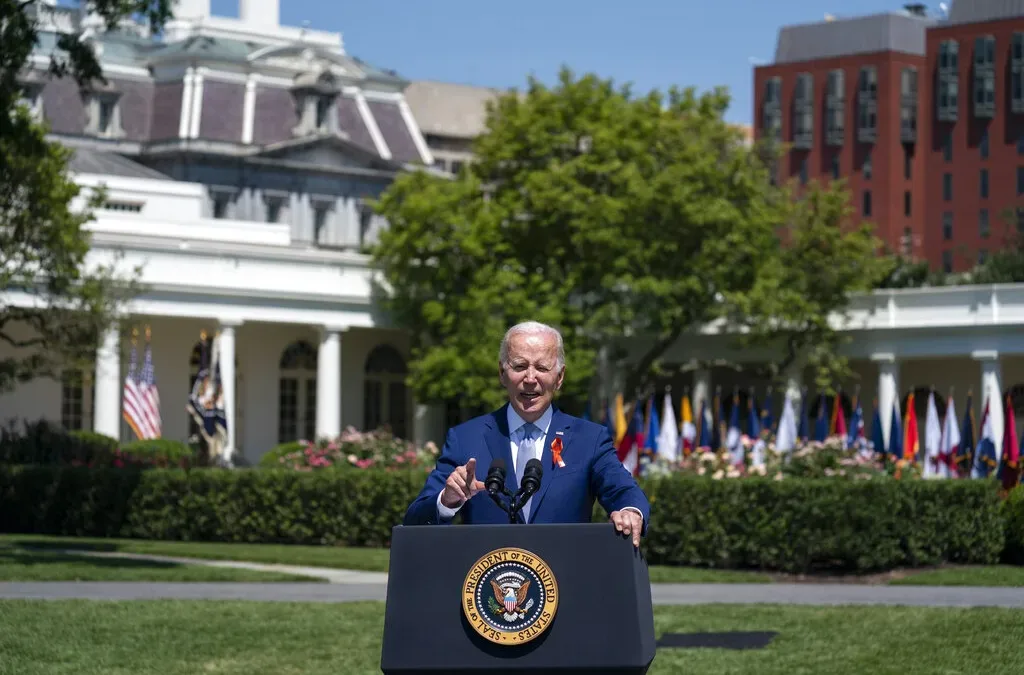
Biden announces new action to address gun sale loopholes
The Biden administration on Thursday announced new action to crack down on the sale of firearms without background checks and prevent the illegal...
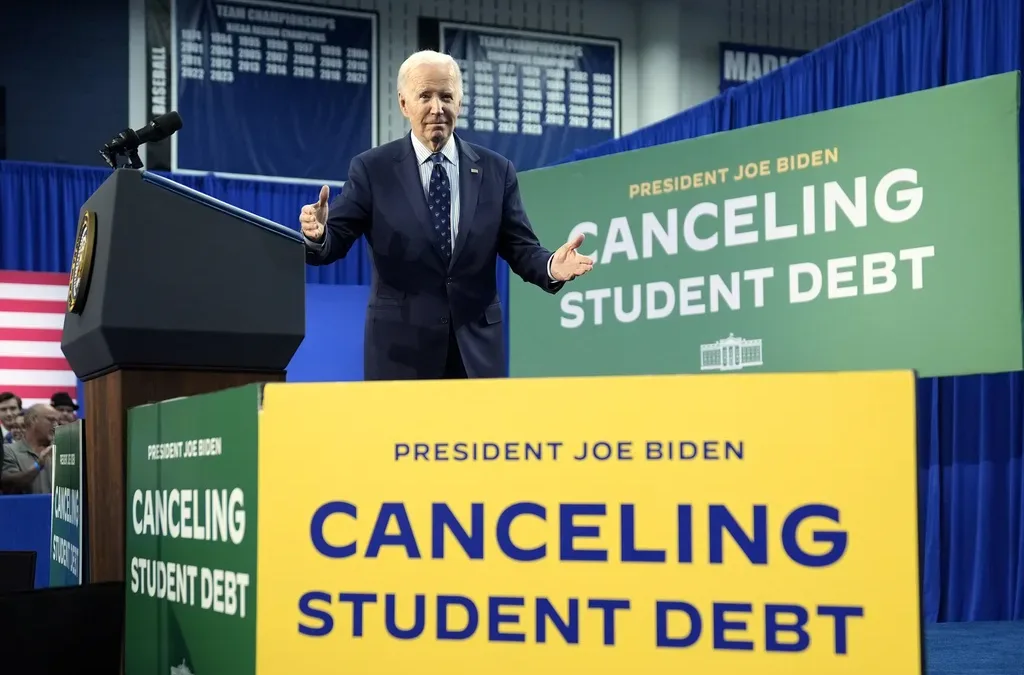
Biden cancels student loan debt for 2,690 more Iowans
The Biden administration on Friday announced its cancellation of an additional $7.4 billion in student debt for 277,000 borrowers, including 2,690...
Local News

No more Kum & Go? New owner Maverik of Utah retiring famous brand
Will Kum & Go have come and gone by next year? One new report claims that's the plan by the store's new owners. The Iowa-based convenience store...

Here’s a recap of the biggest headlines Iowa celebs made In 2023
For these famous Iowans, 2023 was a year of controversy, career highlights, and full-circle moments. Here’s how 2023 went for the following Iowans:...


